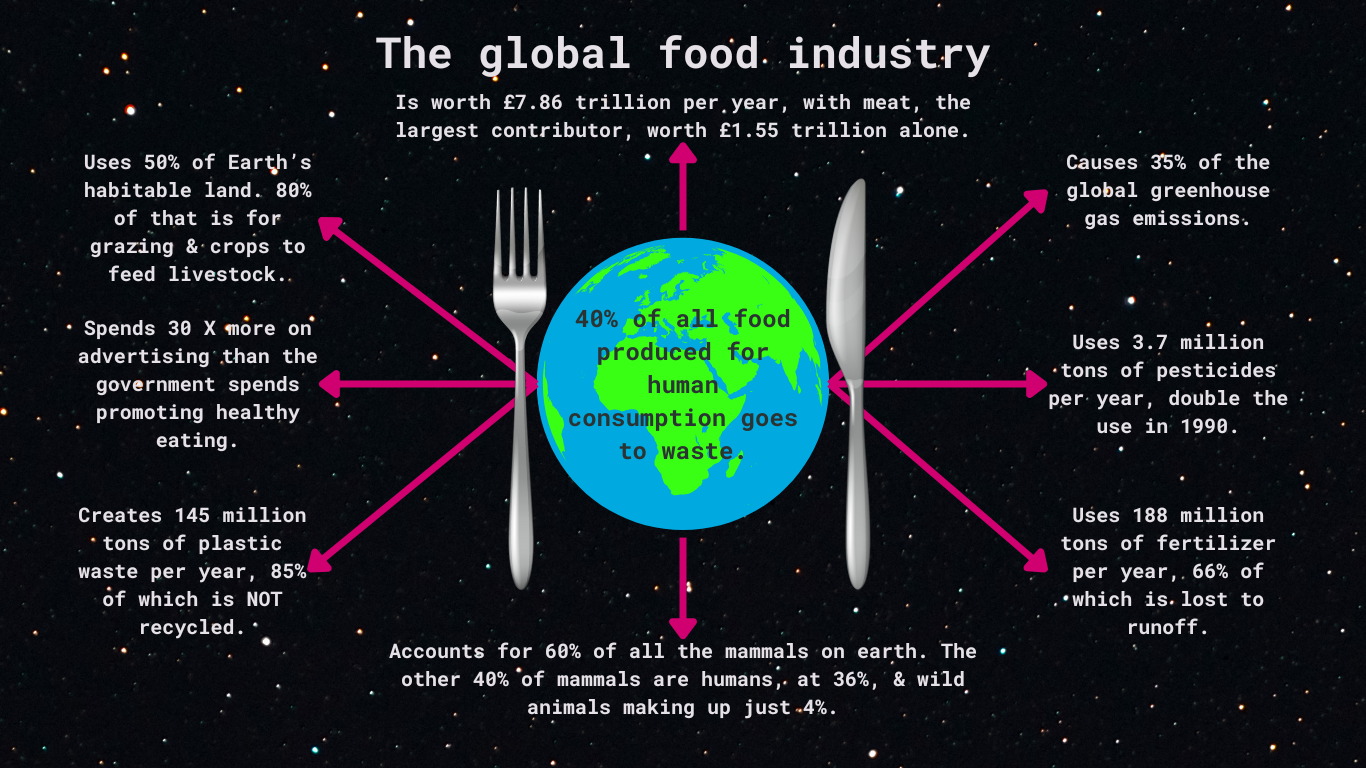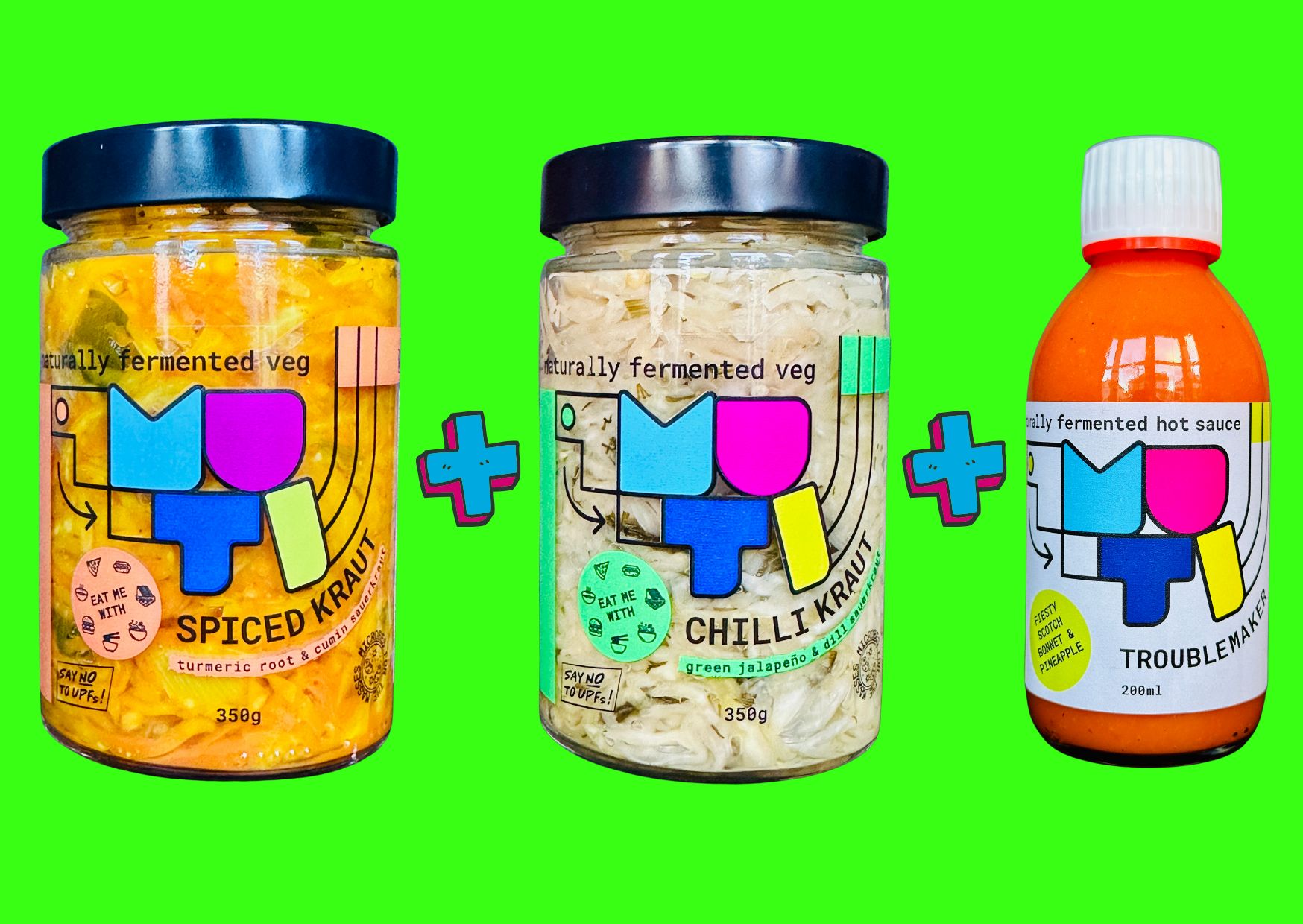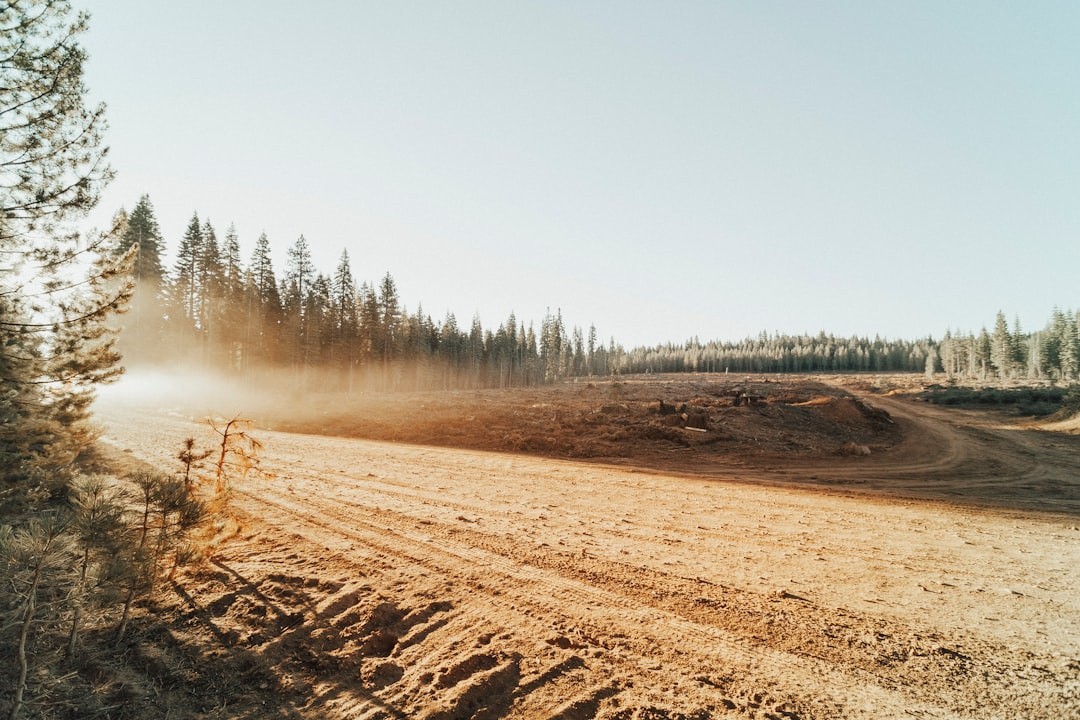Muti is closed for Christmas & New Years
Any orders placed after 18/12/2025 will only be shipped after 05/01/2026
We wish all our customers a wonderful festive season!

Microbes For The Masses
At its heart this is a protest slogan & is what drives Muti. Muti is a business of course, & as such it must make a profit in order to exist & grow, but that is not enough.
I have spent the last couple of years expanding my knowledge of the industrial food system, learning about what's behind the way we eat today & discovering what can be done to change it for the better.
For me, making food is like meditation. I don't follow recipes or consciously think about what I'm doing. I take inspiration from what I find in the cupboards, fridge, freezer, or at the markets & I reach for ingredients that shout out to me. I settle into my little zone & let the ingredients & my hands do their thing whilst my mind just wanders.
I know this is a learned process & that many people do not enjoy cooking from scratch, they find it tedious & stressful & anything but meditative.
I empathise with those who feel this way & I understand completely why so many of us are reaching for foods in the supermarket that are easier, less time consuming, & cheaper to put on the table, whilst also being remarkably tasty.
The quality of our food though has been steadily & systematically degraded by industrialised & intensive farming, insane levels of processing & the introduction of more & more non-food ingredients.
This is is driven by Big Food & is making the world sick in every sense.
The food industry accounts for 35% of global greenhouse gas emissions, second only to the fossil fuel industry. 50% of the planet's habitable land is taken up with the production of food. Our waterways are being poisoned with excess pesticides & runoff fertilizers, negatively impacting our soils & our oceans too, as is overfishing the sea stocks on an industrial scale. Our appetite for meat & dairy products means that, of all the mammals on earth, 60% of them are livestock, 36% of them are humans & just 4% of them are wild. In terms of birds 30% of them are wild & 70% are for food either through eggs or flesh.
On top of these facts, poor diet-related diseases are the number one cause of premature death globally & we're not talking famine here. We're talking about overeating a diet high in empty calories, refined sugars, bad fats & ingredients developed in labs & factories & introduced into our food system with inadequate testing.
When I became a dad, my instinct to nourish grew stronger than ever & I try to feed my family with food made from scratch as much as possible. I do turn to ready-made foods every now & then & we're lucky that both me & my wife are confident in the kitchen & happy spending our time there. We try make a special meal at least once a week that keeps us excited about dinner time & there are always a few jars of ferments around to add a quick veg boost to anything we're eating.
I don't want to come across as preachy & I certainly don't want to pull a guilt trip on anyone. I know we all want our families to thrive & we all care about the state of the world & what the future holds for our children. I just want to share my insights & learnings of a life in the food industry. I want to fight the real food corner & offer information to those who want it. I want to help people relax in the kitchen & make it both easier & more enjoyable to spend time making food.
I'll be doing this by posting recipes, sharing food ideas, dispelling common kitchen & food myths & minimising the hurdles that put some people off making food.
If you want to join in check the articles & recipes pages accessible from the menu above, follow us on socials (@eatmuti), or subscribe to our newsletter below.
Together we can make a difference.
Muti

Products with mass appeal
Muti focusses on making products that most people would be willing to at least try. From the friendly & inviting design of the jars & bottles to the everyday ingredients used in their production, with nothing too weird or obscure which may put some people off. Muti products are designed to be a little less intimidating, making them more likely to be included in day-to-day diets, which is what is needed in order to fully take advantage of the benefits the associated bacteria bring.
Ferments can be intimidating. From the very fact that they are made by utilising bacteria & we've all been taught that bacteria are bad, that they spoil food & make us sick. We have never been taught about good bacteria. Bacteria that play an integral part of a healthy & strong immune system, bacteria that help our bodies absorb more of the nutrients from the food we eat, bacteria that help remove toxins from our bodies, improve our mental wellbeing & assist with better weight control.
These are subjects we'll touch on & speak of in person at markets, on our packaging & via our socials.

Affordability & access
As the business grows one of the key focuses is making fermented foods more affordable & easier to access. At our regular Saturday farmer's market stall on Whiteladies Road in Bristol, we offer our ferments for sale by weight. We encourage our customers to bring their own containers for refill & this not only makes them cheaper but is also more sustainable with less packaging being used. To my knowledge we're the only fermented food company in the UK that does this & we have been doing so since 2020.
In partnership with my kombucha-making friend James (naniasvineyard.co.uk), we have run a number of workshops with our local Scouts group. They have learnt to make kombucha, sauerkraut & fermented hot sauce with hands-on experience & they have had to take their ferments home to nurture to completion. Once finished they have posted pics on our group chat & this has earned them their Fermenter's Badge. For now, they are the only Scout troop in the world with these awesome badges, but the aim is to get the badge & the training taken up by every Scout troop in the UK. What a huge difference this would make to the way people view fermented foods, starting them young & getting them to introduce ferments to their families in turn & also making ferments so much more accessible & affordable.
My next plan of action is to encourage a partnership with a food bank that will accept donations of fermented foods for people to fill their own containers with & take home. The fact that so many people in the UK are using food banks is disheartening, but I'm so thankful they do exist. An unfortunate side of them however is that they generally only accept nonperishable foods & this often means UPFs. So those who need nourishing food more than anyone else are often limited to food with poor nutrition.
At its heart fermented food is about preservation. It is a natural way to preserve harvest through the cold months when access to fresh fruit & veg is at a minimum. So, while they are not quite non-perishable foods, they can survive out the fridge and could provide a route to not only better nutrition, but the beneficial bacteria that could help food bank users to better absorb the nutrition they do consume.

Fixing the broken food system
The biggest challenge. Not only do we have to change the way multinational behemoths, governments & farmers approach the production, storage, sale & distribution of food, but we also have to convince consumers to change the way they buy, prepare & eat food.
At the core of the broken food system is profit. Not the type of profit that helps a company grow, employ & contribute positively to their community without impacting the planet negatively, but the type of profit that empowers global food companies to control raw materials costs to their own advantage, places strains on our natural resources, puts our politicians in the pockets of corporations & provides shareholders with an attractive return on their investments.
These are deep-seeded issues, complex & layered & defended by contractually binding documents, teams of very capable people & greenwashing made possible through huge advertising & marketing budgets, in turn made possible through huge profits. It won't be easy & will require vast swathes of the population to be informed & rebel, accept their roles in it all & make considerable changes to their choices.
For my part I will inform & encourage & try to show a better way. It is just an idea & I am a nobody, but of all the things to stand up for, this is mine.
Muti


